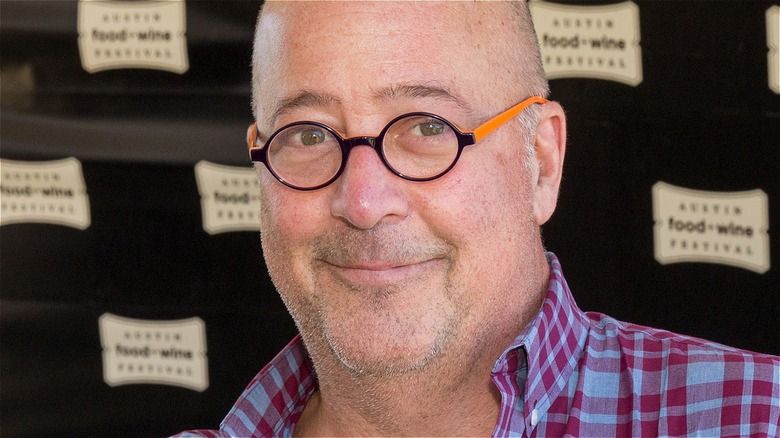The Toxin-Inducing Cookware Andrew Zimmern Avoids Like The Plague
People do all sorts of things to stay healthy in this day and age, but if you thought yoga classes and grocery shopping exclusively at Whole Foods were all you needed to stay in the pink, we have some bad news: You may be swapping out processed foods for mixed fruit containers, but they may come in plastic packaging that not only harms the environment, but can also potentially make you sick. Now, you might make a case for the paper takeaway containers, but according to The Guardian, warm food can soak up the chemicals from such containers, which you then ingest.
Food containers aren't the only things you should be wary of. Even certain cookware and utensils can introduce toxic chemicals into your food. Quite a bummer, isn't it? During an AMA session on YouTube, Andrew Zimmern shared what kitchen items he avoids due to the presence of toxins — and suggested safer alternatives.
The chef steers clear of any and all plastic utensils, including plastic cutting boards. He's not a big fan of non-stick cookware, either, since it often contains harmful chemicals like PFAS, PFOA, and PTFE. PFAS, or polyfluoroalkyl substances, are also found in microwave-friendly popcorn bags, cleaning products, shampoo, and food packaging with anti-grease coatings. You won't see Zimmern buying any kitchenware that could potentially emit these toxins.
What Zimmern uses instead of plastic and non-stick cookware
Non-stick cookware coated with toxic chemicals is best avoided, but if you can't do without it, Zimmern suggests using pans by brands like Scanpan that make PFOA-, PFOS-, and PFAS-free cookware. Zimmern himself uses carbon steel or stainless steel pans. "I can make scrambled eggs in every single one of my carbon steel pans, and in my stainless steel pans, and in my Le Creuset," he insisted in the YouTube video.
As Zimmern said, carbon steel pans can be used like a non-stick pan when seasoned correctly. Simply heat the pan and add a thin layer of oil to it until it starts to smoke. Repeat the process a few times, and the food will no longer stick to the pan.
As for avoiding packaging that might contain toxins like BPA, Zimmern is all for it and prefers to buy canned food produced in Europe (which he says bans more of the harmful chemicals than the U.S. does), but sometimes it's not the biggest concern. "Forget about what containers are. What's worse is the food. So stay away from factory-made anything. Stay away from processed anything. Eat whole foods," he said.

